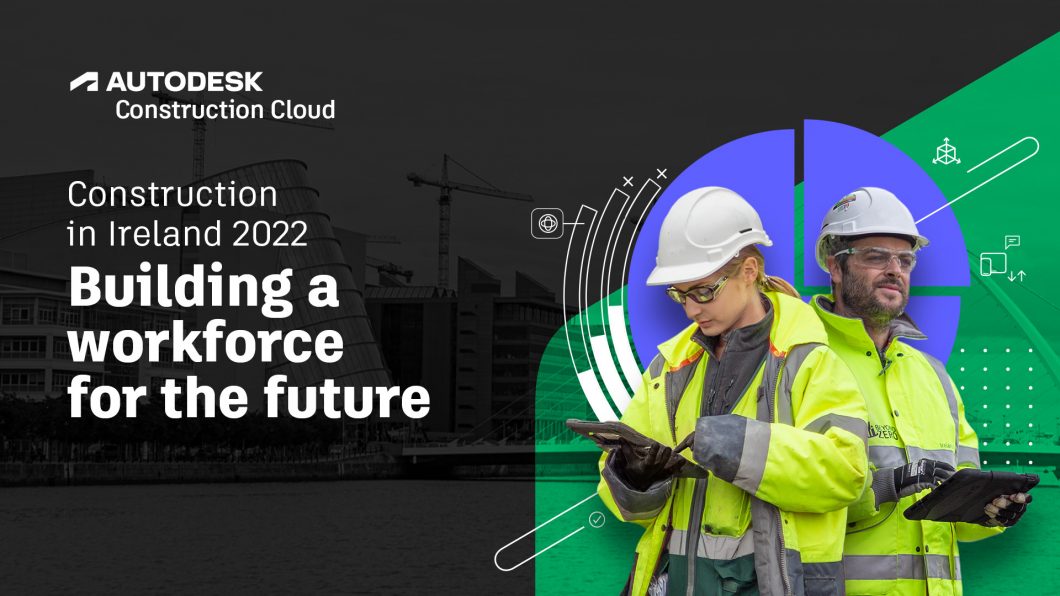
The construction industry is central to Irish life. As well as shaping our landscape and forming the backbone of our sustainable future, construction is a key employer across the country.
Over 127,300 people work in construction, equating to almost 6% of the national workforce. However, this is below the European average of 8% – and people shortages and other talent challenges are causing problems for construction businesses.
We’ve conducted a survey of professionals at Irish construction companies to explore the challenges and opportunities for the industry today, especially when it comes to people.
It’s clear that Irish construction is not in a bad position overall, and has recovered well from the pandemic:
But there are key talent challenges that need to be addressed for the industry to reach its incredible potential.
Download the full report: Construction in Ireland 2022: Building a workforce for the future
Construction companies are facing significant recruitment challenges, which – along with inflation – are limiting their performance. Nearly two thirds (63%) of construction companies are struggling to recruit the talent they need.
Most professionals put the recruitment challenge down to a lack of skilled labour generally (59%) or not being able to find people with the skills needed (43%). But inflation is clearly playing a role; one in ten say that a major factor behind the skills shortage is the cost of living diverting people from construction to other sectors
There are signs of an industry image problem too. A quarter of companies surveyed say construction is less attractive than other industries – and a further 15% say it is seen as a career of last choice.
The Irish government has an ambitious policy agenda for construction, with two large-scale house building and upgrading programmes to be achieved by 2030: the Housing for All and National Retrofit plans.
However, many construction professionals are concerned about the sector’s ability to meet this level of demand and timescale. Two thirds of construction companies believe Housing for All (67%) and the National Retrofit Plan (66%) are currently unachievable.
The key problems are people and prices. Most professionals (85%) believe the rising cost of materials will make it difficult to achieve the targets of the Housing for All programme.
Seven in ten say the industry will need a bigger workforce to meet the targets. Importantly, there are shortages across many areas; two thirds (68%) point to a need for more people with traditional skills, like surveyors and engineers, while 36% believe more digital skills like AR and VR will be vital.
There are worrying signs that construction firms are too concerned with short-term issues to set the business up for future success.
Only one in three firms will prioritise IT investments in the next two years. Meanwhile, 60% of construction companies aren’t planning to invest in any modern construction methods or emerging technologies over the next five years.
Instead, looking to the next two years, companies are planning to prioritise investments in their existing staff over other areas. Seven in ten professionals say training and upskilling existing staff will be a high priority.
Technology could help to address today’s most pressing issues:
However, many businesses appear to be overlooking the potential of digital ways of working – limiting long-term growth.
Despite today’s challenges, the Irish construction industry has outstanding potential. However, it’s critical for companies to continue investing in people, technology and innovation, to create a robust, future-facing industry.
That means strengthening the talent pipeline by attracting new recruits, upskilling workers and giving employees the digital tools that can improve their productivity and satisfaction.
In the longer term, it’s also important to explore new ways of working, like off-site manufacturing, that can make construction more accessible to all kinds of people – as well as delivering higher productivity and quality.
Focusing on people – and empowering them with technology – will be key to Irish construction’s future success.
To learn more about Irish construction’s challenges and opportunities, read the full report: Construction in Ireland 2022: Building a workforce for the future
